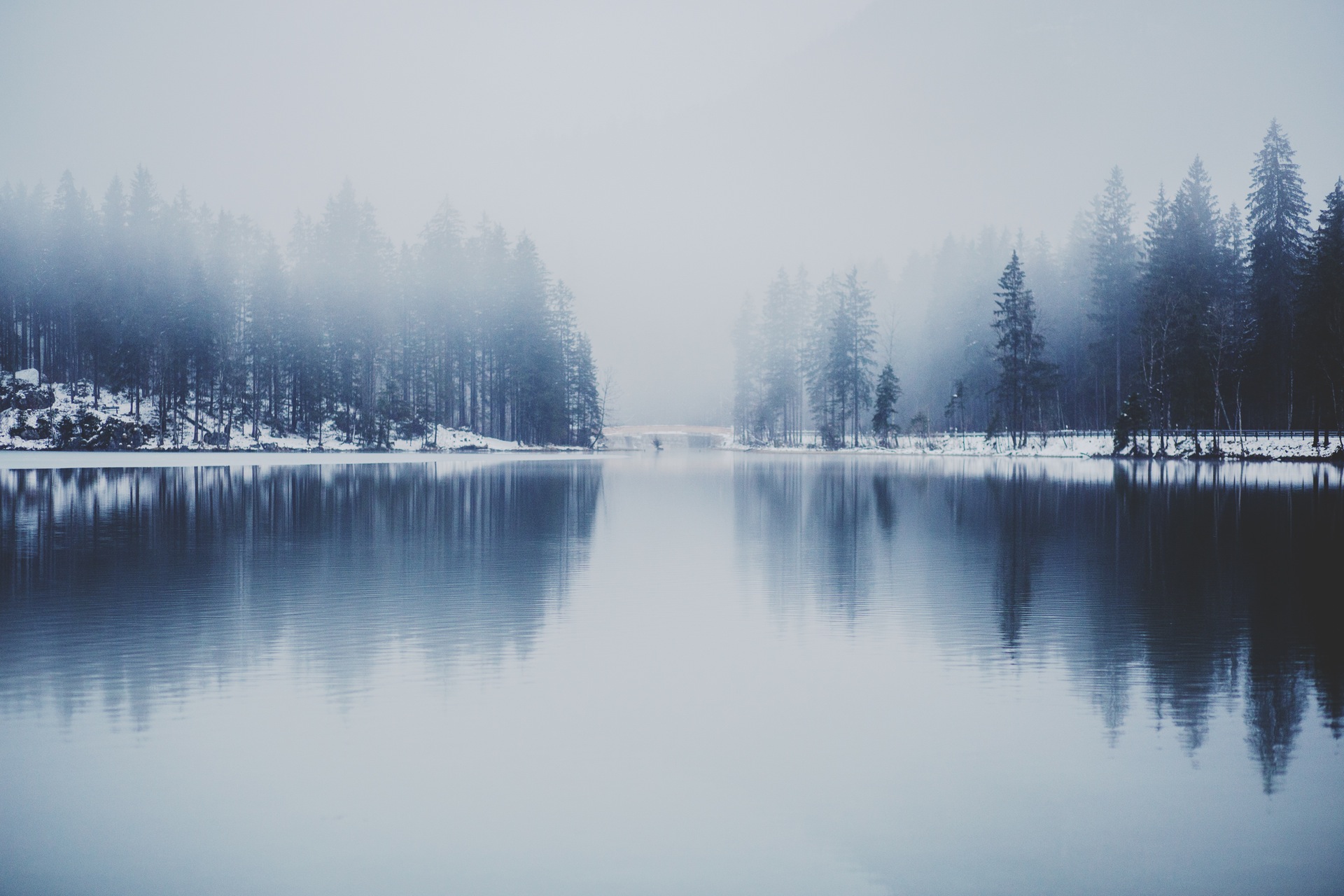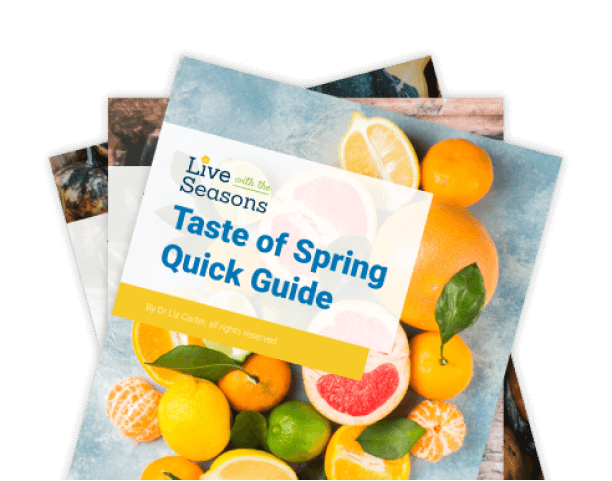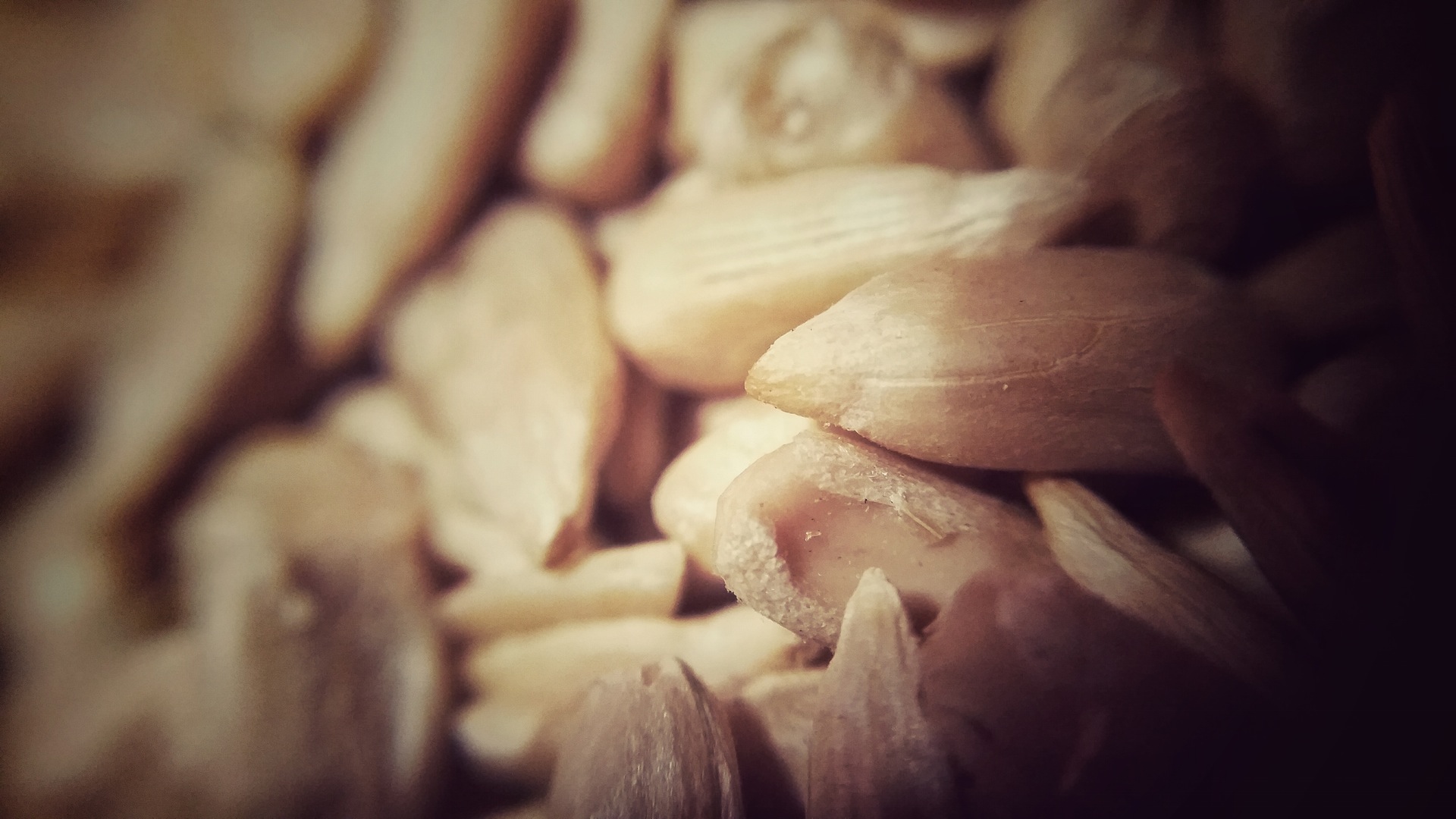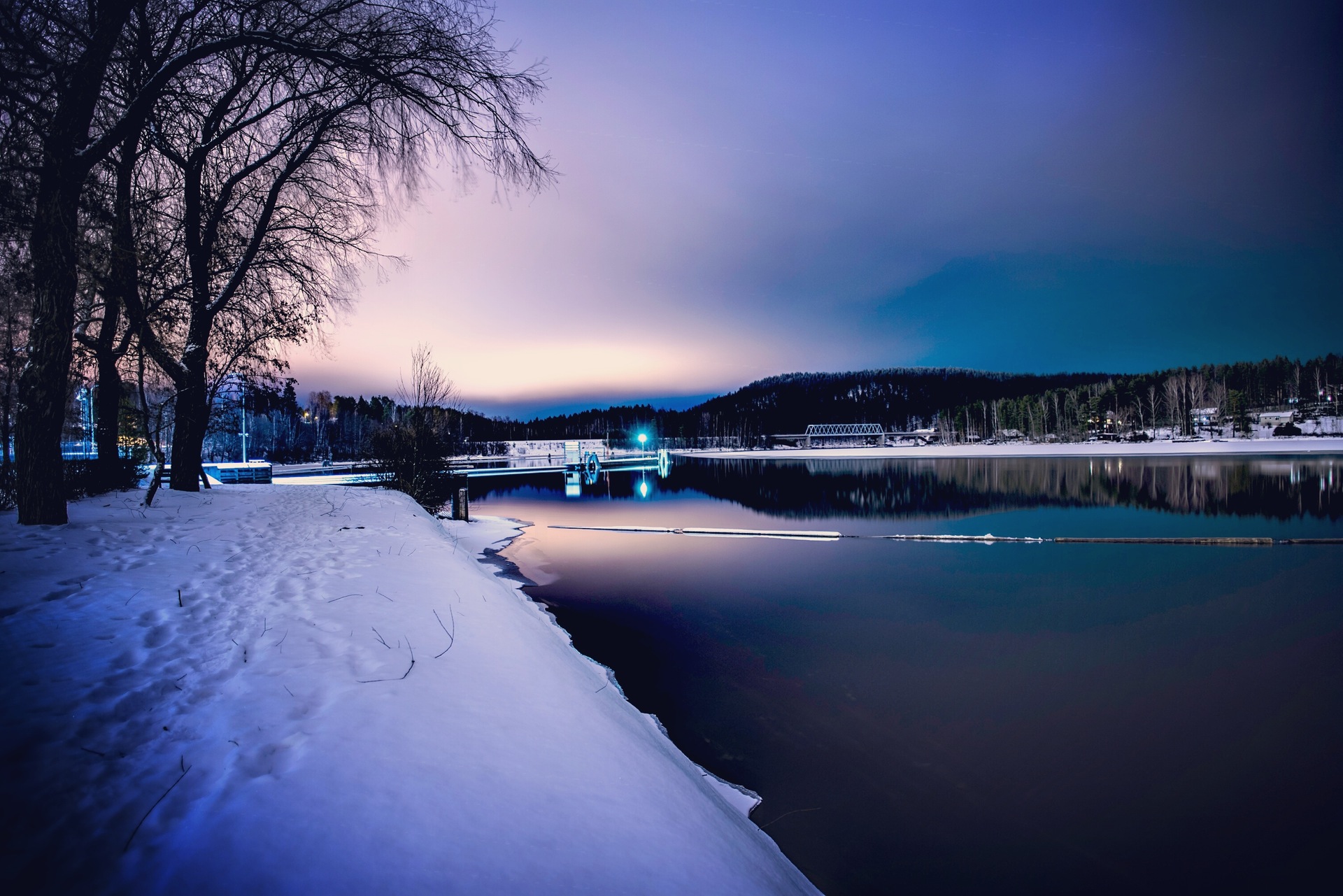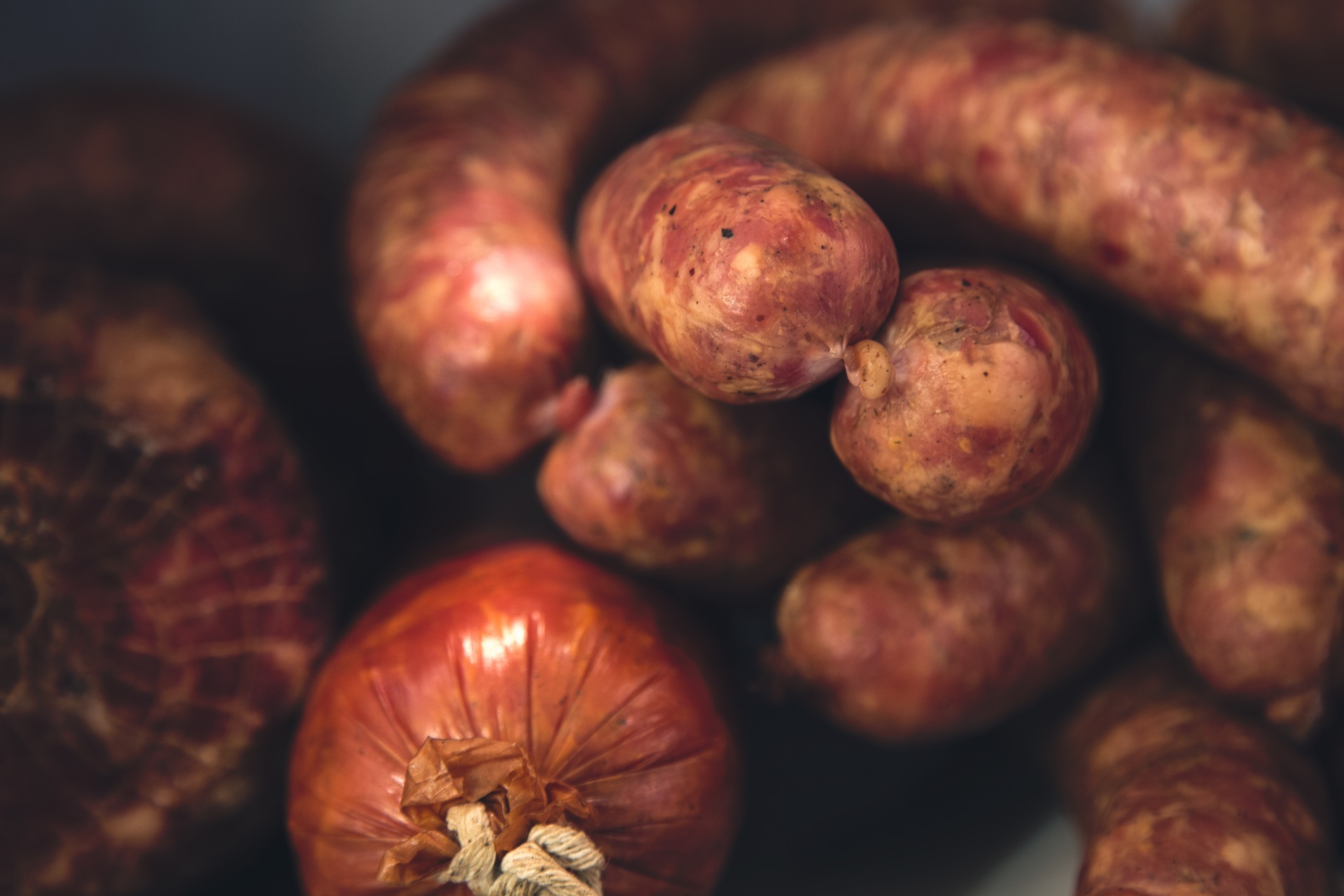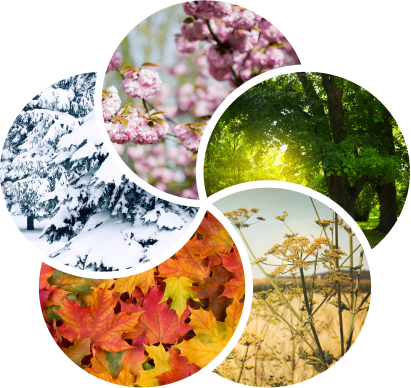If you asked 10 people, or even 100, what their favorite season is, I’d be willing to bet summer would grace the top of the list by a wide margin and winter would be in a distant last place.
Why is this? Do we dislike winter SO much?
Most of you are probably nodding your heads right now saying, “Yes, of course I hate it! I’m tired and cold and I never see the sun because it’s down when I leave in the morning and it sets before I get home!”
I hear you.
These issues are very real, as well as the seasonal depression that can hit at this time of year. The cold and dark clouds our vision and can lead to despondency and despair.
But hold on to your hats!
I’d like to throw something out there that’s a little radical.
Perhaps it’s not winter we hate, but the demanding year round schedule we’ve designed for ourselves.
Winter is meant to be a time of rest and recovery from the rest of the year. But not many of us take the time to slow down listen to winter.
It’s sending very clear signals that we should be sleeping more, resting, staying home, cooking hearty and tasty food, and spending time reflecting on the past year while preparing for the next that’s right around the corner.
But who has time for all that nonsense?
We’ve got schedules to keep, jobs to go to, kids to raise, pets to take care of, and the list goes on. We don’t have time to slow down!
And this is really why we're dissatisfied with this chilly season. We can’t help but see the signals telling us to slow down and rest; they’re literally surrounding us in our indoor and outdoor environments.
But we feel like we can’t listen to them, so a deep disharmony is created.
We’re not living in tune with the season because we afraid that our lives can’t slow down. We’re barely keeping up as it is.
We definitely can’t take a moment to breathe and recover.
But, that’s exactly what the season is influencing us to do. Breathe. Recover. Rest. All wonderful and necessary things.
Honestly, they sound great, don’t they?
The seasons play a large part in our experience of life, no matter if we’re walking in the woods or living in a penthouse in New York City. Modern society has greatly disconnected us from the natural rhythms of life, and this is where our winter discontent originates.
If we understand the season and try to live more in tune with it, our discontent and unrest lightens.
Clearly, we can’t all hibernate during the winter (as much as we’d like to), but small adaptations can be made to live more in sync with it.
How do we find out more about what parts of our life winter affects?
This article, of course!
We’ll take a look through the lens of Chinese medicine, whose core philosophy is based on understanding how the natural world plays a role in our lives.
There are 5 elements that reflect the natural world in Chinese medicine, and winter’s element is water.
When we think of water at rest, a still pool nestled in a cave in the mountains comes to mind. Snuggled up, away from the world, stark, quiet, and deep.
The qualities of the water element run deeply (pun intended!) through us, and understanding more of its correlations can teach us about ourselves and about the season that we love to hate.
The Winter
| Element | Water |
| Movement | Downward |
| Stage of Development | Storage |
| Climate | Cold |
| Smell | Putrid |
| Color | Blue/black |
| Taste | Salty |
| Organs | Kidney, bladder |
| Time of Day | Bladder: 3 - 5 PM Kidney: 5 - 7 PM |
| Emotion | Fear |
| Sound | Groaning |
| Tissue | Bones |
| Sense Organ | Ears |
| Fluid | Saliva (excess) |
All right, seriously Dr. Liz, how are all of these weird associations going to help me?
The more we know about winter, the more we can create balance within our lives by living more in tune with its principles.
Get a Year of My Taste of the Seasons Guides
Improve Digestion, Mood, and Overall Health and Wellbeing in Each Season According to Chinese Medicine
Movement: Downward
Winter is a time of downward energy.
It’s a time to be quiet and sequestered from the world, and to recharge our batteries. We’ve put out a lot of energy and growth the rest of the year, and now is the time for recovery.
This downward, sinking energy can be heavy and powerful. It can weigh on us and make us want to stay home and rest rather than go out.
The season and our bodies are telling us that we need to conserve rather than spend. We’ll naturally want to be less physically active this time of year.
It’s not the best time to start something new, but rather to let the dust settle from the rest of the year. Near the end of the season, as spring energy increases, new growth and ideas will naturally happen.
Dr. Liz Tips:
- Embrace this less outwardly productive time of year with hobbies that recharge and refresh you. Read some novels you’ve been putting off, write, create in whatever way is meaningful to you. Winter is a very inwardly productive time. It’s the perfect chance to take time for yourself, reflect, and prepare for the year ahead.
- For all of you New Year’s Resolution fans out there, you’re fighting against the natural energy of the season! Make your resolutions, but don’t start them until the spring when you’ve got the energy of the natural world behind you.
Stage of Development: Storage
Winter is a time of storage for us.
The best way to visualize this storage in the natural world is to think of a seed.
Winter is not a time of growth, but a time of incubation. Of restoring our reserves and readying our resources for the new energy of spring.
It’s a time of patience and waiting until the moment is right. If the seed sprouts too early, the harsh conditions of winter will squash its chance at life.
We can also think of a root cellar, filled with the late summer harvest of canned fruits and preserved meats and fermented vegetables.
We’ll monitor this cellar all winter, closely watching the dwindling supply, making sure that we have enough to last us until spring.
The root cellar (which is underground, and following the downward energy of the season — see the synergy here!) is a metaphor for how we should approach winter: with care and caution.
Its harsher climate and lack of external resources encourage us to wait patiently to for new ventures.
Winter is truly a yin time of year. Yin is the opposing force to yang. It is quiet, dark, still, passive, deep and mysterious.
Many industrialized nations don’t value yin in their societies. What’s the point of down time and rest when you could be productive?
This logic works for machines, but not for humans or any other living thing. Life requires rest and recovery, and is more productive for it.
Dr. Liz Tips:
- Winter is the perfect time to get all of your ducks in a row for the coming spring. Take stock of your resources and find out what you need to move forward. Start dreaming and planning of what you want the rest of your year to look like. With a little thought here, the following months could unfold in a different and more beneficial way.
- Don’t be afraid to create more down time for yourself. Cancel plans and make a slower pace a priority. Your body and mind will thank you for it. And you won’t be missing out. You’ll be making your life richer by allowing yourself to breathe and go deep to find what you really want out of your life.
Climate: Cold
Winter is the season of cold.
Kind of a no-brainer, right? It’s chillier no matter where you live!
The dryness of fall has left and the colder temperatures seep in.
If we’re not careful, that cold can sink into our bones, the tissue associated with the water element and winter. The cold closes our pores and causes deep contraction of our tissues.
This is again a signal to slow down and spend more time indoors. Our metabolisms naturally slow in the winter and the cold encourages this shift.
Even if we love cold weather sports and being out in the snow, we naturally gets sapped more easily since we’re using up more energy to keep ourselves warm.
Short exposures to cold can be extremely therapeutic, as they jumpstart our metabolism and promote healthy circulation. This concept is one of the foundational ideas of naturopathic medicine.
However, longer exposures to cold can be detrimental and further deplete the resources you’re trying to hang onto throughout the winter.
Too much cold decreases your immune response, leaving you more open to getting sick. It also can show up as a runny nose with clear mucus, and pale skin due to lack of circulation.
Dr. Liz Tips:
- Eat lots of warming, hearty foods. This is the time of year to eat richer foods to help replenish your resources. Choose healthy fats like avocado, grass-fed butter, cold water, oily fish (salmon, cod, mackerel, sardines, anchovies), and grass-fed fattier cuts of meat. Thick soups and stews are also perfect this time of year.
- Take salt baths. This is one of my favorite recommendations for my patients. Especially this time of year, the hot water feels great on joints and bones, and the minerals from the salt relax and rebuild the nervous and endocrine systems. Get my favorite dead sea salt to add to your bath here.
- Plan short activities outside in the cold to boost your circulation and immune system. We all need to get off the couch and get moving in the winer. A brisk walk, cross-country skiing, snowboarding or skiing can be a great way to get the blood pumping and invigorate yourself. If it’s too much to get outside that day, try a short cold burst at the end of your shower.
Smell: Putrid
The smell of winter is putrid.
Sounds lovely, doesn’t it?
The word putrid usually brings to mind rotting meat, but that’s not always how Chinese medicine has described it.
Think about the sharp and intense odor in a storage area for dried and salt-preserved meats. A putrid smell can also comes from stagnant water in a pond when the ice finally melts away or from the ammonia in cleaning products or stale urine.
We can see how putrid is a part of the water element and the winter season.
Because the pores on our skin are closed down more in the cold, we urinate more.
Stored and cured meats can be an essential part of survival to get through the winter. and frozen water that has been stagnant all winter has to thaw and begin to move before new life is breathed into it.
Dr. Liz Tip: If you happen to smell this lovely scent, remind yourself that it’s a necessary part of the cycle of life and survival through the season. It has it’s place, even though it’s kinda gross.
Color: Blue/black
Blue is the color of winter. Traditionally, you can also see it as a dusky blue/purple/black.
With the short winter days we are often see these colors since we witness the dusky blue-purple hours around dawn and dusk, and see more of the black night sky in the early evenings and late mornings.
The snow reflects the blue of the sky brightly, and frozen landscapes take on a bluish hue.
We can feel quite blue emotionally in the winter, and blue has become synonymous with depression.
Blue also represents cold to us, another characteristic of winter. Our lips and skin can take on a bluish tint if we’re exposed to cold too long.
When asked what their favorite color is, most people respond with blue. Blue can be very calming and serene, quieting our minds and creating a sense of tranquility.
Dr. Liz Tip: When we live with winter, rather than fighting against it, we can trend toward this peacefulness rather than the dark depression. Welcome the slow down and create more serenity for yourself!
Taste: Salty
The taste of winter is salty.
Salt preserves meats and vegetables, enabling us to continue eating them throughout the winter. Most of our water on earth is salt water.
Salt is incredibly mineral rich and the kidneys (organs of the water element) thrive on proper mineral balance.
Perhaps most importantly, salt is crucial to survival. We have to maintain the proper mineral balance in our bodies or our organs will not function.
The essence of winter is about this same concept: survival and storing enough to make it through.
We are so often very mineral depleted, as our food is processed or grown in mineral-poor soil. And we use highly refined salt like Morton’s salt or even sea salt, instead of less processed salts that are chock full of minerals.
Salty foods, like bacon, broth, seaweed, miso, and anchovies are perfect foods for the winter season.
You don’t want to go too crazy with the salt. Excess salt causes lots of saliva to be produced, which is the body fluid of the water element. So if you’re food is so salty that you’re salivating a ton, back it down a couple notches!
Dr. Liz Tips:
- Make sure your salty comestibles are made with high mineral salt! Refined salt can raise blood pressure, cause water retention, and be inflammatory to your system.
- When people crave salt, they’re actually craving minerals. So, start cooking with a high mineral salt. Here’s a link to my favorite cooking salt.
- Combine salty foods with black/dark in color foods, and we’ve got a power-packed winter food! Dino kale (cooked) and black beans are great examples.
- Skip the salads this time of year and focus on cooked vegetables. In Chinese medicine, raw vegetables are very cold on the digestive system. If the climate is already cold, you don’t want to add more cold on top of that! Too much cold in the digestive system can lead to loose stools and diarrhea. Choose cooked veggies, minimize raw fruit, and focus on salty and richer broths and soups.
Foods |
Spices/Herbs |
| barley | chive |
| millet | garlic |
| dandelion greens | nettle |
| artichoke | parsley |
| seaweed | cilantro |
| anchovy | borage |
| clam | chickweed |
| crab | miso |
| lobster | celery seed |
| mussels | salt |
| oyster | soy sauce |
| sardine | |
| cod | |
| salmon | |
| duck | |
| pork | |
| celery | |
| sesame seeds (white and black) | |
| walnuts | |
| pumpkin seeds | |
| sunflower seeds | |
| mushrooms |
Discover even more with added cheatsheets, tips, and recipes for eating for each season right here:
Get a Year of My Taste of the Seasons Guides
Improve Digestion, Mood, and Overall Health and Wellbeing in Each Season According to Chinese Medicine
Organs
Each season and element in Chinese medicine have organs associated with them.
Winter, or the water season, is correlated with the bladder and kidneys. In Chinese medicine, organs not only have a physical function which somewhat overlaps with Western physiology, but also a mental and emotional function.
Let’s see how these organs line up with the winter!
The Bladder
The bladder is responsible for water storage and a large part of its responsibility is to keep dry areas separate from wet areas.
It’s very important to have the appropriate amount of body fluids in the right places. For instance, urine stored in the bladder and not floating through the abdomen.
The bladder plays a significant role in regulating the natural make up and amount of body fluids, such as the synovial fluids of joints, saliva, the mucus membranes of the sinuses, throat, and digestive and reproductive tracts, eye lubrication, and skin moisture.
The maintenance of body fluids can be translated to fluidity in the mental, emotional, and spiritual realms.
If there’s enough fluidity, one’s emotions and thoughts can flow forward effortlessly and smoothly. If fluidity is lacking, feelings get stuck, muddied, and lost, marooned on the side of a dry river bank.
If this lack of fluidity becomes chronic, people’s though patterns can become engrained and limited, and they lose perspective on all that is possible.
Their ability to respond to the world becomes more spastic and disorganized.
Often fear is the strongest perpetuator of this lack of fluidity. It paralyzes people physically, mentally, and emotionally. Good flow enables people to deal with their fear and the evolving world around them and respond appropriately.
Dr. Liz Tips:
- Physically, mentally, and emotionally, make sure you stay hydrated. Physically, this means getting enough water. What’s enough? Check out this video. Mentally and emotionally this means keeping yourself fluid and dynamic with things you enjoy and new experiences.
- If you notice you’re getting stuck or held up somewhere due to fear, explore that. Journal, talk to your therapist or friends, make an effort to decipher what’s going on there for you. If you ignore it, it’ll always be there to trip you up. Take the reins and rework that sticky spot so you can create more flow in your life.
The Kidneys
The kidneys in Chinese medicine are the basis for life.
They store all of our inherited energy from our parents, of which we have a finite amount.
We must carefully use this inherited energy, or jing, throughout our lifetime, as it cannot be rebuilt fully. When we are young, we have a lot of jing and we see this in strong bones, shiny hair, and stamina. As we age and our jing decreases, we lose some of these qualities.
Jing usage is like a credit card. You can only put so much on it before you have to pay it back. And while your balance accumulates, so does interest, making it an uphill battle to recover.
Jing gets depleted through working too hard, taking drugs, poor diet and lifestyle, and excessive sexual activity. It can be recovered through sleep, rest, healthy diet, exercise, and mental and emotional clearing.
The kidneys are linked to the nervous system in Chinese medicine, so more jing means clearer thoughts, cleverness, and skill, as well as mental stamina.
So not only do the kidneys regulate and control water and fluids, they also have a wide reaching affect on the entire body, supporting it through this primordial essence of jing. This loosely equates to our adrenal glands in western terms, which govern electrolyte balance, stress hormones, and sex hormones.
Dr. Liz Tip: You definitely want to stay in the good graces of your kidneys! They’ll let you know if you’ve been pushing it too hard when fatigue that seems ever-present, more frequent urination, low back and knee pain set in. These are clear signs that you need to rest, recover, eat well, and slow your life down to pay off some of that jing debt!
Time of Day
In Chinese medicine, every 2 hour period is associated with a different organ.
Let’s check in with the water organs and see where they fall during the day and what that might mean for you during those hours.
Organ |
Highest Energy |
Lowest Energy |
| Bladder | 3 - 5 PM | 3 - 5 AM |
| Kidney | 5 - 7 PM | 5 - 7 AM |
Any time of year, but particularly in the winter, these organs can be over or under active.
When I mention 3 - 5 PM, I think most people groan a little (sound of the water element!) as it tends to be a very low energy time of day.
We hear about the “2:30pm crash”, which is right when the bladder energy is starting to gain momentum and the small intestine energy is fading out.
The bladder is often lacking in that crucial fluidity, making us feel like we’re walking through thick mud.
At it’s lowest time, 3 - 5 AM, people may wake often to urinate due to the bladder’s lack of energy to properly control fluids.
5 -7 PM can also be a very fatigued time of day. We’re usually getting off work, driving home, and trying to scrape together some energy for dinner.
You might find yourself bouncing back a bit just after 7. Oftentimes I think people attribute the uptick in energy to being away from work and getting to relax, but many times it’s due to transitioning away from that depleted kidney time where they’re screaming at you to take a break!
For some, 3 - 7PM can be their highest energy time of the day which can also signal imbalance.
Most of the time this is false energy where the kidneys and bladder are amped up on the surface but very depleted underneath.
Remember, with jing you can never get back to zero. It depletes over your lifetime, so spend it wisely.
Many people experience waking or night sweats between 3 - 7 AM, then report being able to sleep well after 7. This is often due to a kidney yin deficiency, which causes heat-like symptoms because the kidney energy is literally burned out.
Dr. Liz Tips:
- Most people walk around chronically dehydrated, so let’s rebuild those fluid reserves! You’ll be amazed at how much more energy you have by simply drinking more water. How much should you drink? Check out this video. Having more fluidity on a physical level can greatly help the mental and emotional levels to start moving as well.
- If you notice you’re really tired in that 5 - 7 PM range, try to do some meal prep ahead of time for yourself. Spend some time cooking on the weekend so dinners are quick, easy, and healthy during the week. This way you’ll be repleting your jing instead of depleting it with fast food and other inflammatory choices.
- Avoid caffeine if you can. Caffeine stimulates the kidneys, which can make you feel good for a few hours, but if you’re already depleted, you’ll crash hard after that initial push and further decrease your resources. Try green tea, which has a low amount of caffeine, is calming, and has loads of antioxidants. Tulsi tea is also a great choice because it’s an excellent adrenal tonic.
Emotion: Fear
Winter and the water element’s emotion is fear.
This challenging season can create a lot of fear around survival.
It’s a primal time, where the world is stripped of comfort, warmth, and valuable resources leaving only the bare essentials.
You must be clever, quick-witted, resourceful, and willing to take some risks to survive this time of year.
When our survival is threatened, we can respond in two ways to fear. It can make our blood run cold and paralyze us in our tracks, leaving us vulnerable to whatever danger is present. Or, we can blow past our fear and become fearless and often reckless in order to feel safe.
When we’re fearless, we feel invincible and in control, even though we’re not. It can be addicting and is often a very difficult cycle to break because it makes us feel powerful.
Fear is our most primal emotion, and it can become pathologically engrained in our response to situations.
Every circumstance becomes about survival, and as a result we become hyperaware, hyper-vigilant and very reactive.
When we’re constantly concerned about our survival, we trust less and become guarded and difficult to interact with. We start to believe that no where is safe and no one is looking out for us but us.
Dr. Liz Tips:
- Reckless leads toward danger, not away from it. Be aware of your fear level and try to take a step back. When we get a rush of adrenaline, our vision narrows and our focus becomes surviving moment-to-moment. This is often not appropriate in most modern day situations. Take a few deep breaths, re-center yourself, and really look at your fear level. Is it appropriate?
- Physical activity and movement can be very helpful to burn off extra adrenaline. Go the gym or take a brisk walk. Don’t push too hard, otherwise you’ll trigger another adrenaline response. Exercise should calm your nervous system and help you to think more clearly.
Sound: Groaning
The sound of winter is groaning.
We make this sound when we’re stiff from the cold of winter or when there’s been shock or a situation of intense fear.
It is most notable in day to day life when we get up in the morning. That gravel in your voice is the groaning of the water element. This often happens when we wake before 7am or when we’ve depleted our resources in the past few days or nights and the kidneys are trying catch up.
A groaning voice sounds flat and there is little movement or modulation in tone. Imagine if you felt threatened. You would keep your movements and sounds to a minimum in order not to create a disturbance.
In nature, we can hear the groaning of ice as it moves and cracks in the deep cold.
In an interesting cultural note, we hear groaning a lot in the US in young women. It’s very trendy right now to groan.
The technical term is “vocal fry.” It’s very prominent in the Kardashian family, among other young starlets.
The US is a very water and wood-centric culture, where the traits of these elements are emulated by many and deemed more worthy and superior to others.
It’s fascinating that our desire to be more like a water element has even trickled down into the way that we speak.
Even though winter can be a difficult time of year, it has a lot to offer us.
It challenges us to be better by encouraging us to rest, reflect, and be patient for the coming year.
Its starkness forces us to look inward and take stock of who we are and what we want.
Under all of that snow and cold, there’s a lot of depth and soul to this sparse season that we can only find through embracing its austerity.
How do you feel about the winter? Feel free to leave a comment below!
If you enjoyed this post about winter, check out my other posts on fall and late summer.

